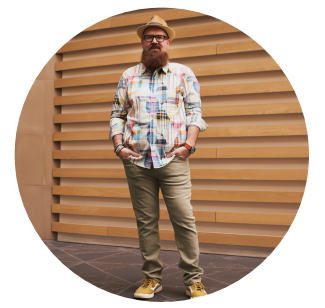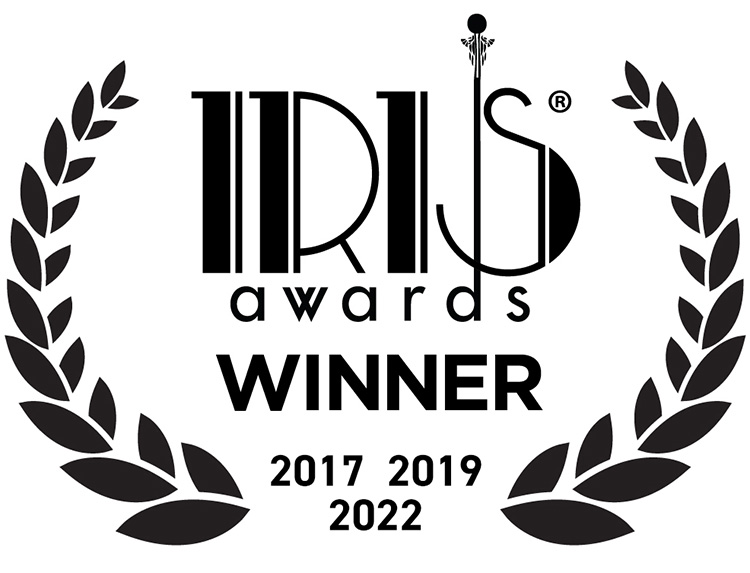In addition to Thanksgiving, November includes another opportunity to be grateful — National Adoption Month! Just a little over 13 years ago, we created our family through open adoption, and we couldn’t be more thankful for the joy and fulfillment our son has brought to our lives.
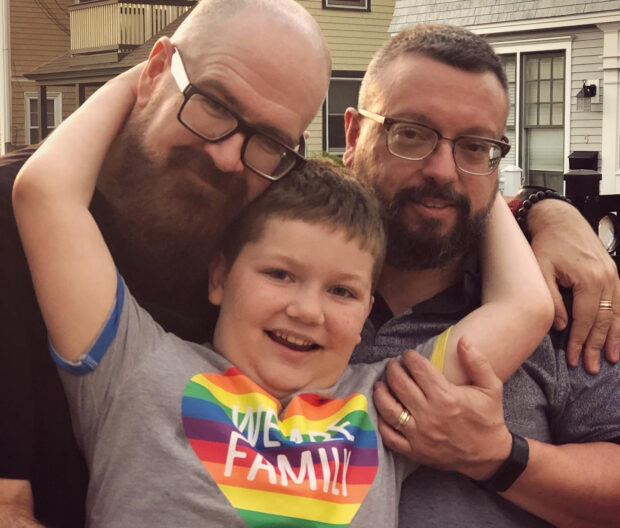
In honor of National Adoption Month, I recently helped give a presentation* about LGBTQ parents at one of my chorus rehearsals. Afterwards, I wanted a place to share the links and photos from our talk, so decided to pop it onto the blog. You know I never pass up an opportunity to celebrate queer families!
LGBTQ parents form their families in all sorts of ways, not just adoption. And since there isn’t a holiday for the entirety of our extended rainbow family, I’m coopting November to celebrate all queer parents! I realize Mother’s and Father’s Day can also be a time to recognize moms and dads, but those holidays can be unnecessarily gendered and exclusionary of trans, nonbinary, or other LBGTQ parents.
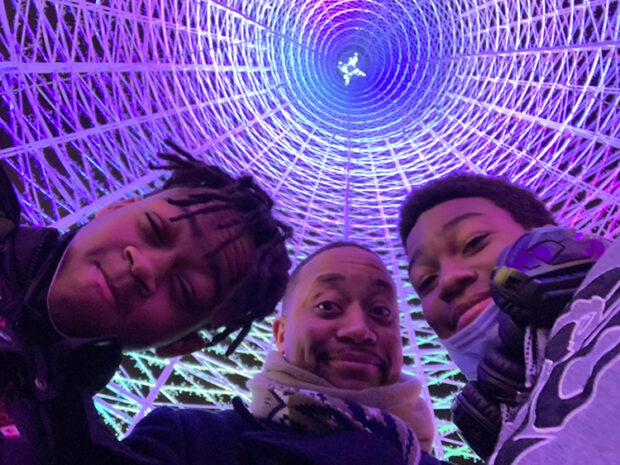
How do LGBTQ people become parents?
While many of these methods fall into the “non-traditional” category, it doesn’t make LGBTQ parents any less suited to raise healthy, happy children. Some would argue the extra screening and effort we go through makes us more qualified.
- Adoption – this can include domestic or international adoptions, adoptions from public or private agencies, and can be closed or open adoptions. Open adoptions are increasingly common and are when the adoptive parents are in contact with the biological parents. The birth parent is typically part of the process in choosing the adoptive parents.
- Kinship – adopting a grandchild, younger sibling, or other relative.
- Surrogacy – process of someone carrying a child in their uterus on behalf of another person or couple.
- IVF (in vitro fertilization) – involves fertilizing an egg in a lab setting, then transferring it into someone’s uterus for gestation.
- Foster parenting – caring for children from the foster care system. This can result in children being permanently adopted by their foster parents.
- Biologically – this can include children from previous heterosexual relationships (prior to coming out), bisexual couples, or other arrangements.
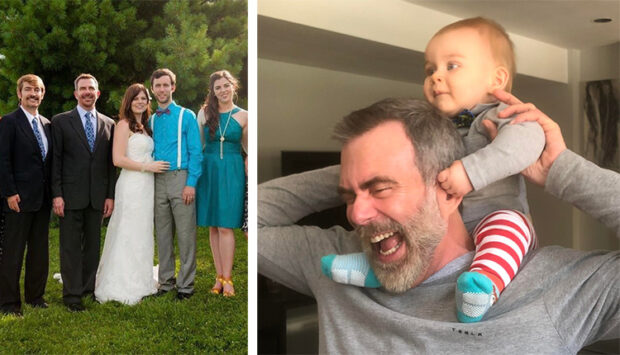
How many LGBTQ parents are there in the United States?
Do you know any LGBTQ parents? Odds are, you do.
- 114,000 same-sex couples are raising children under age 18
- 37% of LGBTQ individuals (approximately three million) have had or raised a child at some point in their lives
- Approximately six million children have at least one LGBTQ parent
- Nearly half (48%) of queer women and one in five queer men are raising children under the age of 18
Sources: Williams Institute College of Law at UCLA, 2013 & 2014-2016 American Community Survey
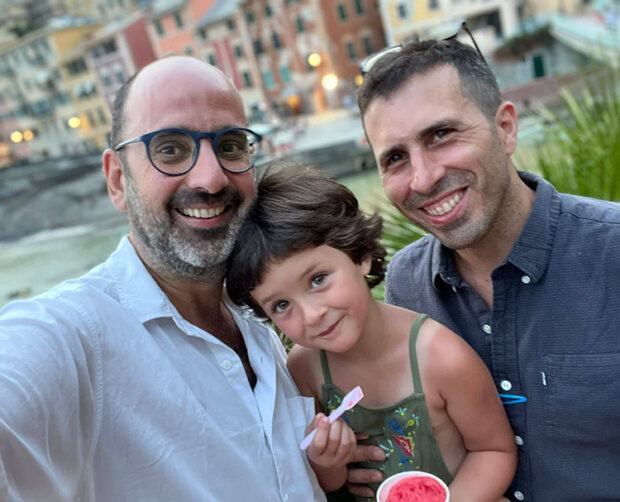
What challenges do LGBTQ parents (and potential parents) face?
- Despite legal victories (re: marriage equality), state laws vary widely when it comes to LGBTQ folks adopting or fostering children.
- Many adoption agencies are operated by religious organizations and faith communities that refuse to adopt to LGBTQ parents.
- Depending upon the political climate, existing laws, and the attitudes of specific judges, communities can be hostile to LGBTQ folks wanting to become parents and/or raise children — even their own biological kids.
- Ongoing hostility, violence, religious fanaticism, and discriminatory politics (particularly towards trans people of color) can prevent LGBTQ people from feeling safe and secure enough to have/raise children.
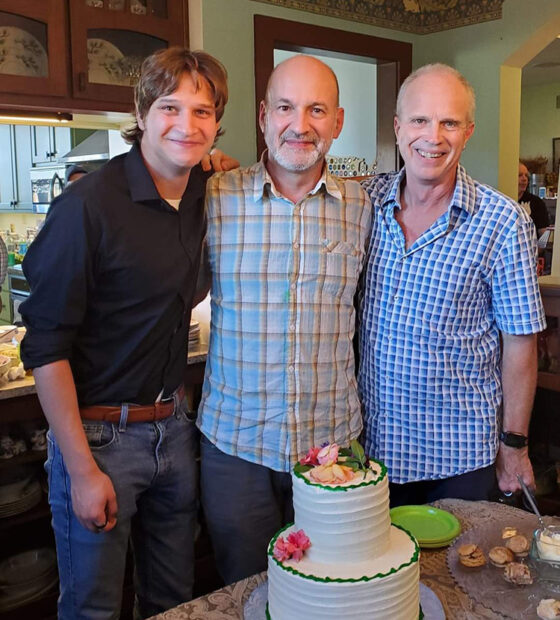
How can you learn more about and advocate for LGBTQ parents?
Visit and contribute to these organizations.
Adoptions Together – DC area adoption agency, open to and supportive of all types of parents
COLAGE – community for children of LGBTQ parents
Comfort Cases – support and advocacy for foster children
Family Equality – national organization advocating for LGBTQ families
Lambda Legal – national legal organization supporting the LGBTQ community
Pact: An Adoption Alliance – specializing in transracial adoption
Rainbow Families – support and community for LGBTQ families in the DC area
You can also help by talking to the LGBTQ parents (and parents of LGBTQ kids) in your family, workplace, or community. Listen to their stories and learn how you can support them with your vote, your money, your words, and your actions.
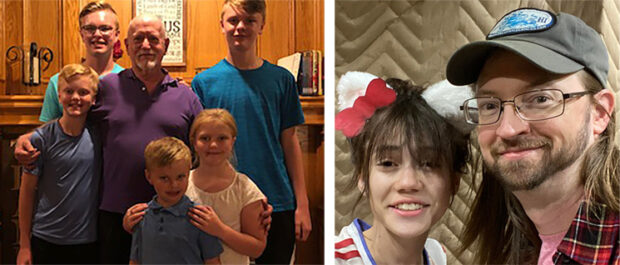
At the end of our presentation to the chorus, we had all the parents in the room stand up to be acknowledged. The photos in this article are of GMCW members and their kids or grandkids.
Similarly, I want to take the opportunity here to acknowledge all the wonderful LGBTQ parents and families out there! I am so grateful for you and all you do raising your families in this sometimes hostile, hateful world. I wish for you strength, health, safety, and unending love and happiness.
. . . . . . . . . . . . . . . . . . . . . . . . . . . . . . . . . . . . . . . . . . . . . . . .
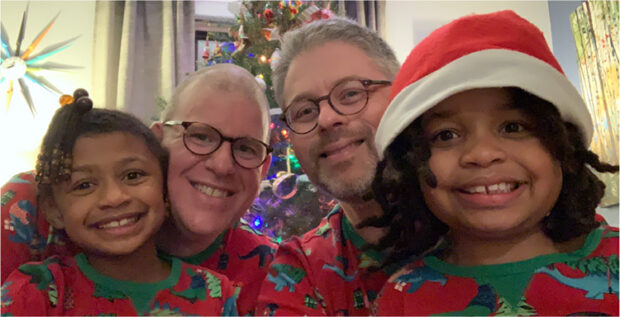
*The idea for the presentation was suggested (and the data compiled) by Silvio Menzano, a friend and fellow dad from the Gay Men’s Chorus of Washington DC. Occasionally during rehearsals, members will share a “DivInc (Diversity & Inclusion) Moment.” These have become a great way to learn more about our chorus family and the LGBTQ community as a whole, whether it focuses on our trans and non-binary members, military veterans, or the diverse cultural and ethnic backgrounds in our ranks.


